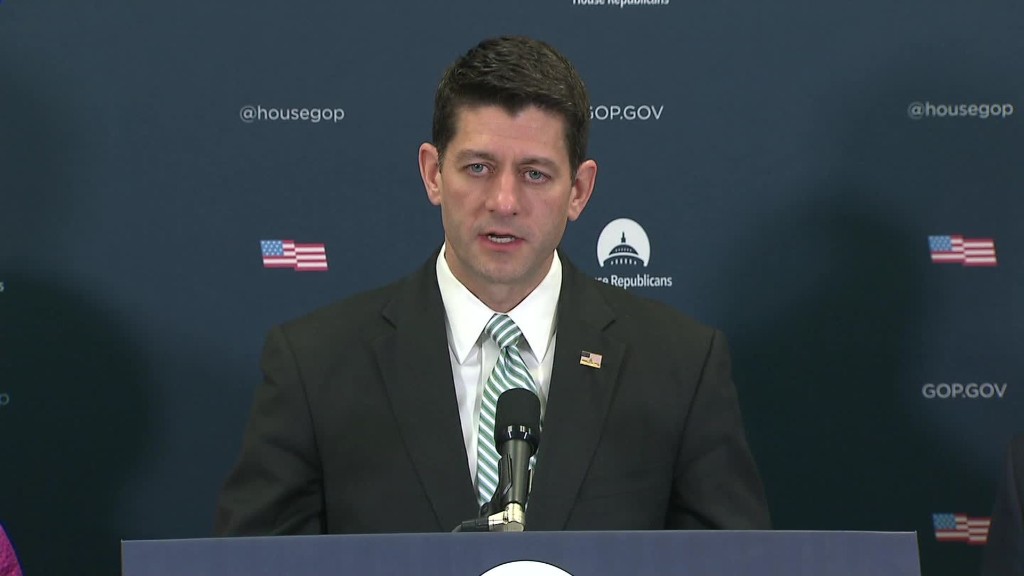
The renewed GOP effort to repeal and replace Obamacare could be bad news for those with pre-existing conditions.
The proposal under discussion among conservative House Freedom Caucus members and the White House would allow states to opt out of two key Affordable Care Act provisions: essential health benefits, which require insurers to cover certain services, and community rating, which bars carriers from charging consumers based on their medical history or gender.
Eliminating these federal requirements could greatly erode the safeguards Obamacare put in place for those with pre-existing conditions, violating President Trump and Republicans' repeated promises to protect these folks. It would leave many enrollees -- particularly sicker ones -- on the financial hook for much more of their care.
Also, it would allow insurers to effectively cherry-pick the people they want to cover.
Related: Health care talks intensify, but no proof of any changed minds
Here's what would likely happen:
The essential health benefits provision requires all insurers to cover 10 services, including maternity care, substance abuse treatment and prescription drugs, in all plans sold on the individual market.
Without the measure, insurers could offer cheaper plans that don't cover as much. They would not have to pay for costly benefits, such as mental health services or even hospitalization. They could also opt not to cover the treatments needed by patients with costly illnesses, such as cancer, diabetes and hepatitis C.
That would work out well for young and healthy people who don't go to the doctor much. They could buy skimpy plans with low premiums.
But it wouldn't be so good for those who need care. They would have to shell out for all the services that their insurance policy doesn't cover. And they wouldn't be shielded by Obamacare's financial protections -- such as the annual limit on deductibles and co-pays -- since those would only apply to covered benefits.
Getting rid of the community rating provision would once again let carriers base their premiums on an enrollee's health or gender. Again, healthy people would benefit from lower rates.
But sick people could be charged sky-high premiums commensurate with how much their treatments cost, leaving some unable to afford coverage. And young women might have to pay more since they typically use more health care services and could become pregnant.
Related: Before Obamacare, some liked their health care plans better
In the final hours before the GOP bill collapsed last month, the Freedom Caucus convinced Republican leaders to weaken Obamacare's essential health benefits' measure, leaving it to the states to determine what services should be covered. But this move spooked moderate Republicans, who were concerned it would leave their constituents with less care and bigger bills, and led to the bill being shelved. The current discussions underway haven't healed any of those divisions.





